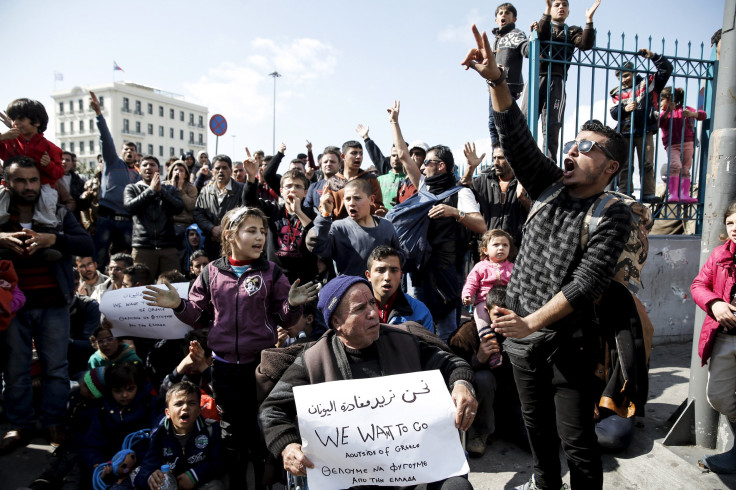Europe Refugee Crisis: Greece And Austria Continue Feud As Over 120,000 Refugees Arrive In EU

The rift between Austria and Greece widened Friday as Athens denied a request from Vienna’s interior minister to visit a refugee camp, Deutsche Welle reported. The snub comes a day after Greece recalled its ambassador from Vienna — accusing Austria of trying to team up with other countries when it failed to invite Greece to a conference on the crisis.
“Our country guards its borders, which are also Europe’s borders, in the best possible way. This is a fact confirmed by [EU border agency] Frontex, the European Commission and other institutions,” Greek Migration Minister Yiannis Mouzalas said in a statement responding to comments from Austria that Greece has not done enough to protect its borders.
Mouzalas described Austria’s latest move as “hostile” — arguing Greece has dealt with large numbers of refugees. Greek officials ordered that fewer refugees be allowed to travel to country’s mainland from islands close to Turkey.
Despite winter conditions, refugees have continued entering Europe in high numbers, fleeing conflicts and repressive states including Syria, Iraq and Afghanistan. Refugee arrivals in Greece and Italy have already surpassed 120,000 people in 2016, with more than 111,000 people arriving in Greece, according to estimates from the International Organization for Migration. Since the beginning of the year, more than 400 refugees have died making the dangerous Mediterranean crossing into Europe.
Ministers from Austria and Balkan countries met Wednesday to discuss border checks and how to stem the influx of refugees. EU states are scheduled to meet March 7 to discuss the crisis along with Turkey.
Disagreements between countries have become more pronounced in recent weeks with the British newspaper the Guardian running an editorial Thursday urging European states to work together calmly.
“Bridges need to be mended, not ambassadors recalled,” the editorial said. “The EU is a rich bloc of 500 million inhabitants that should be capable of managing the arrival of hundreds of thousands of desperate people. That can only happen if it is done collectively and in close, cool-headed consultation – not in frantic, separate moves that only make the problem worse.”
© Copyright IBTimes 2024. All rights reserved.






















